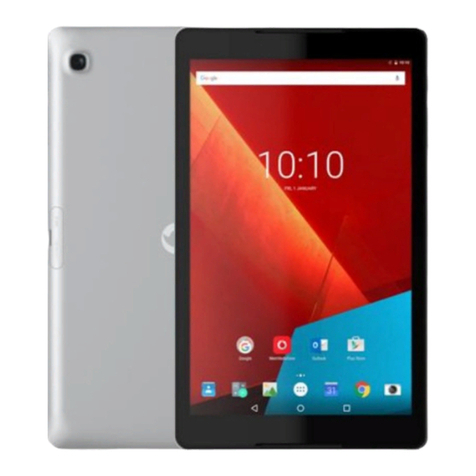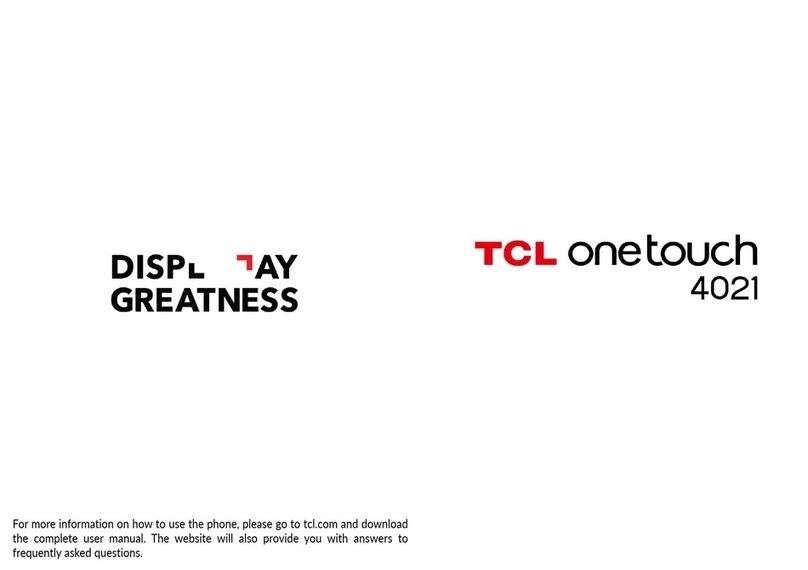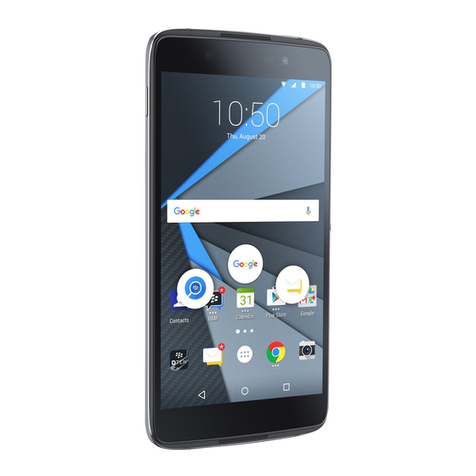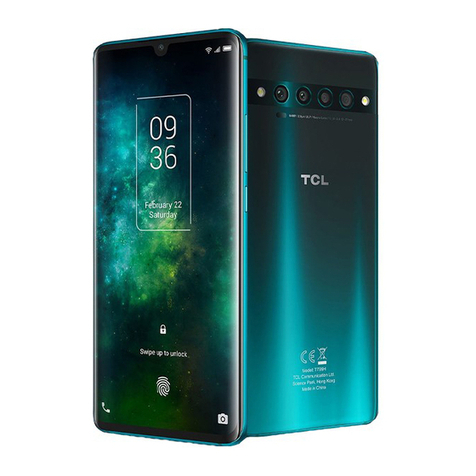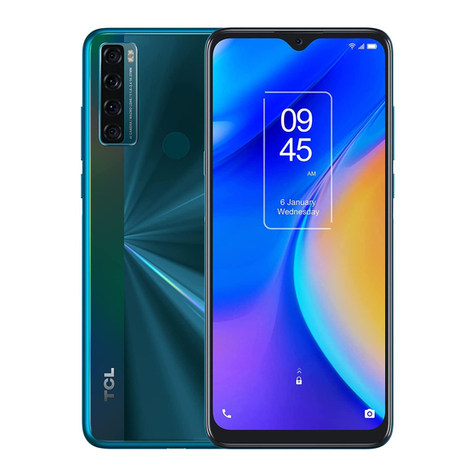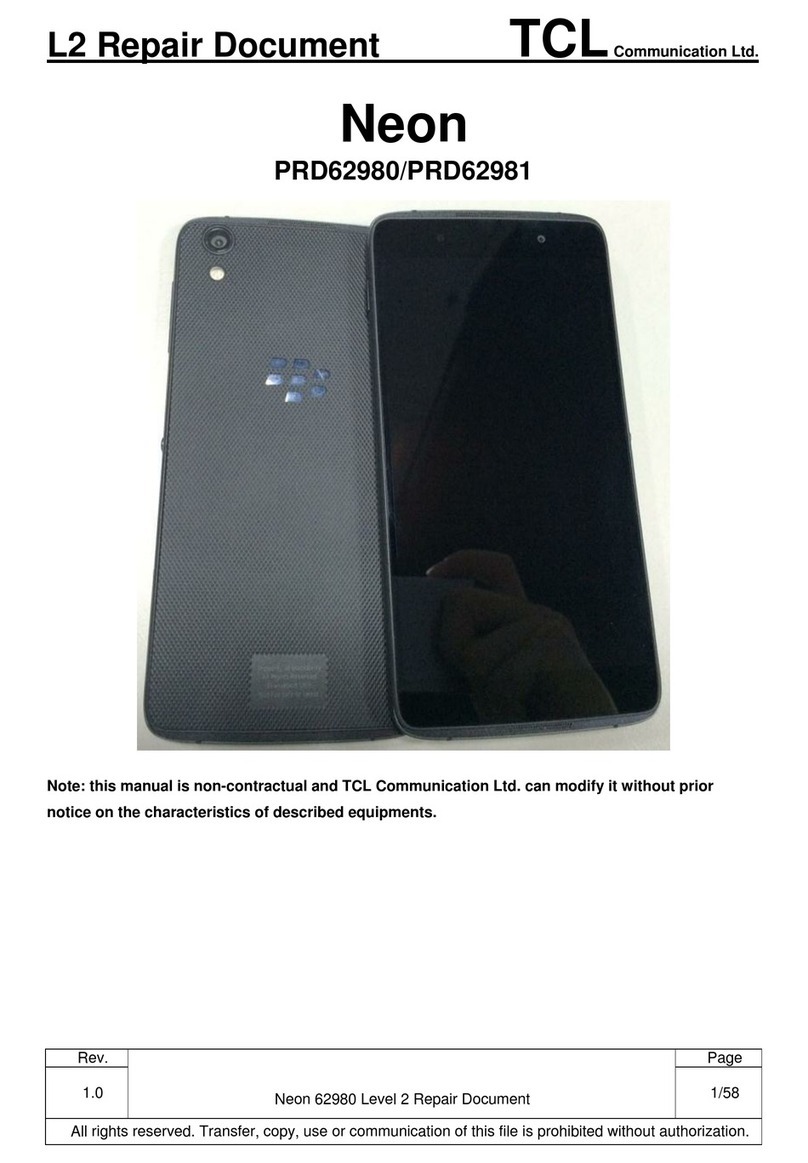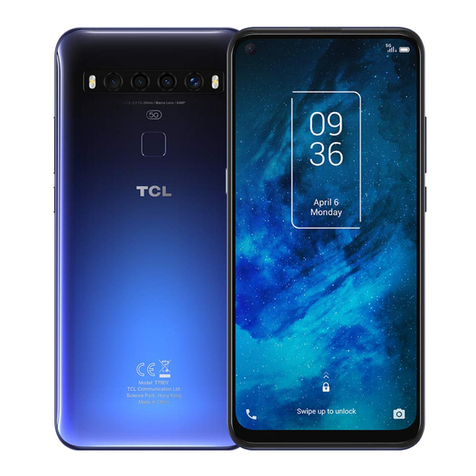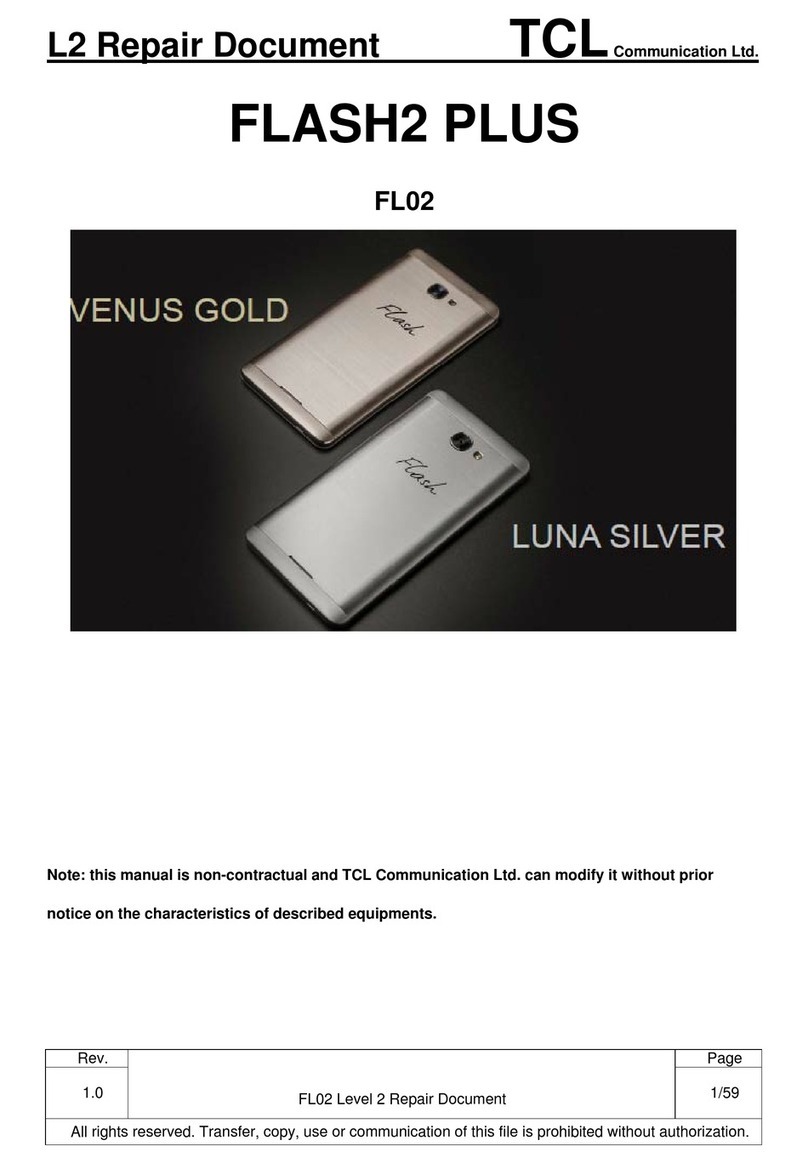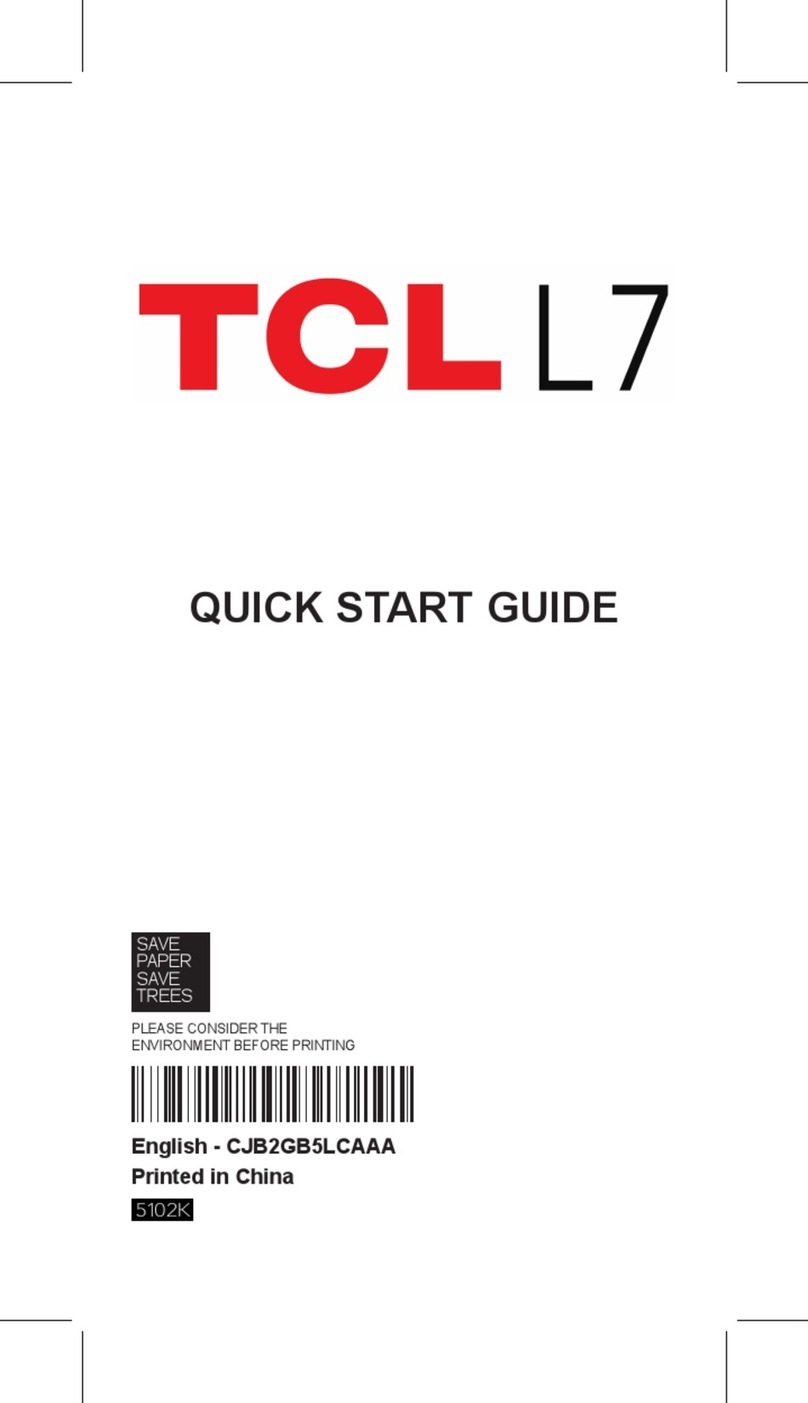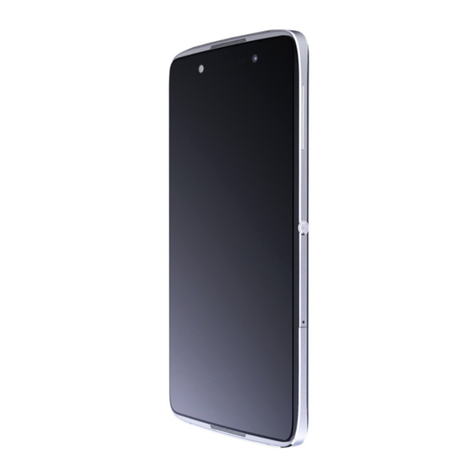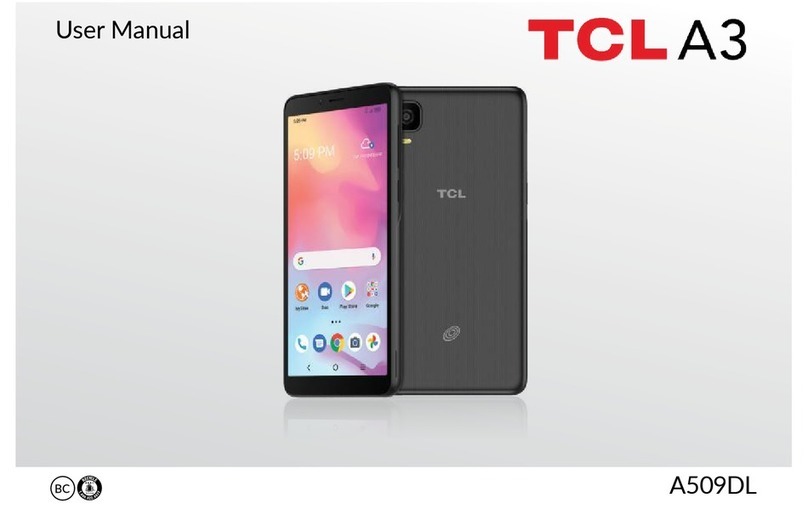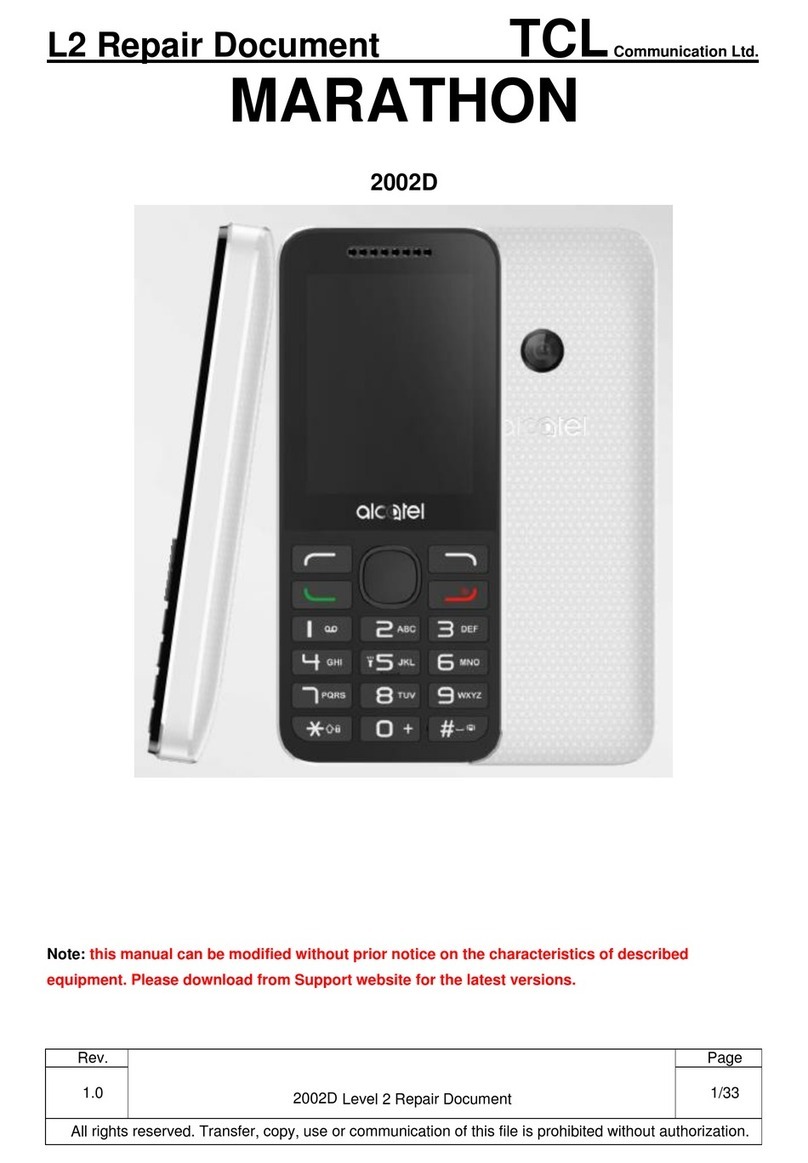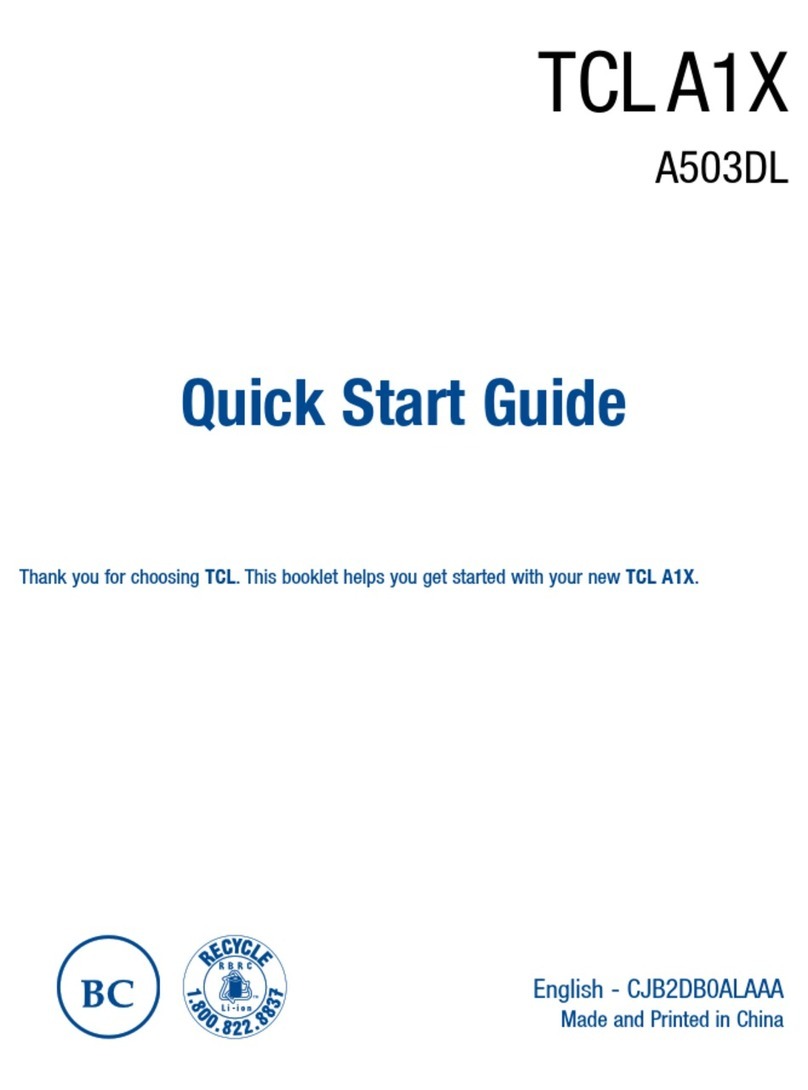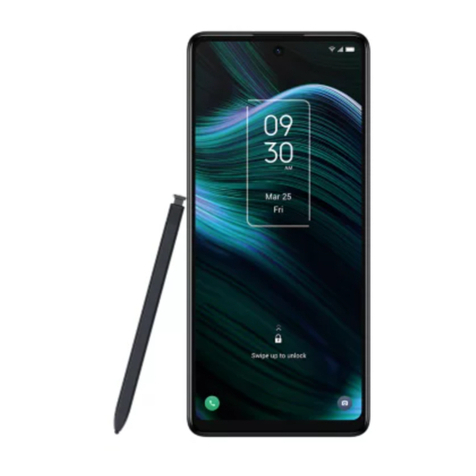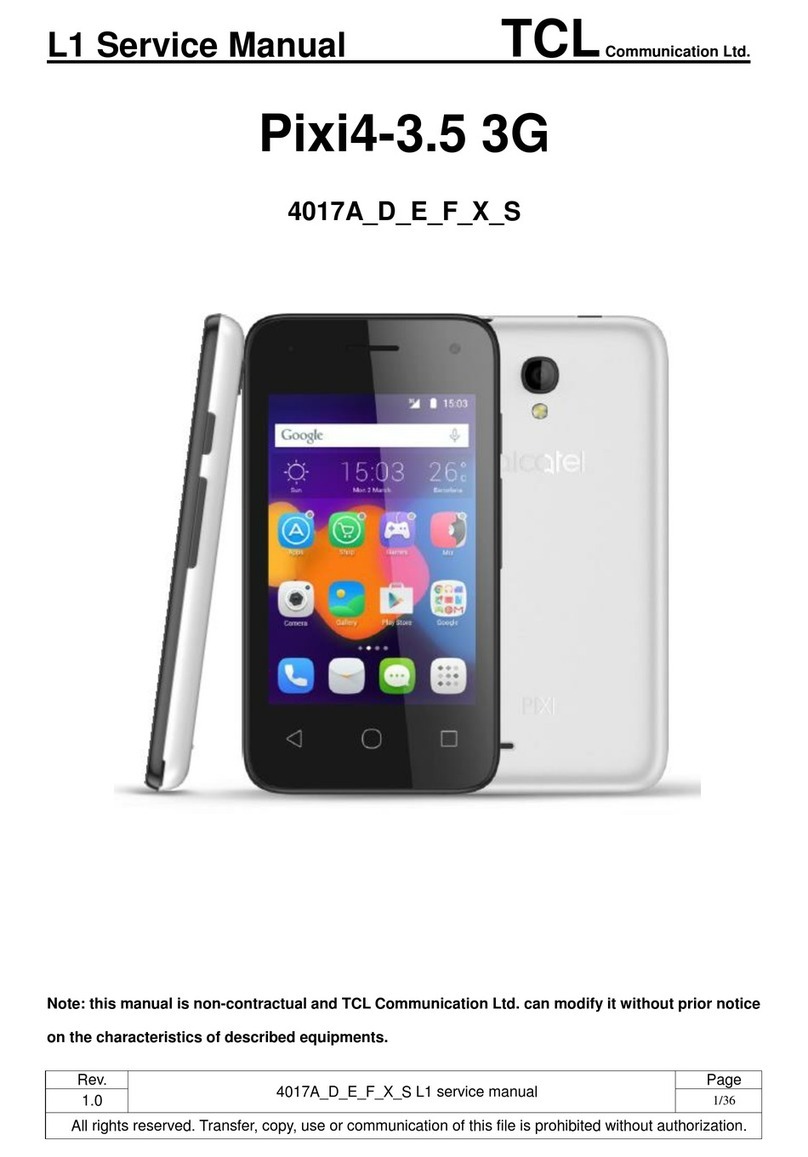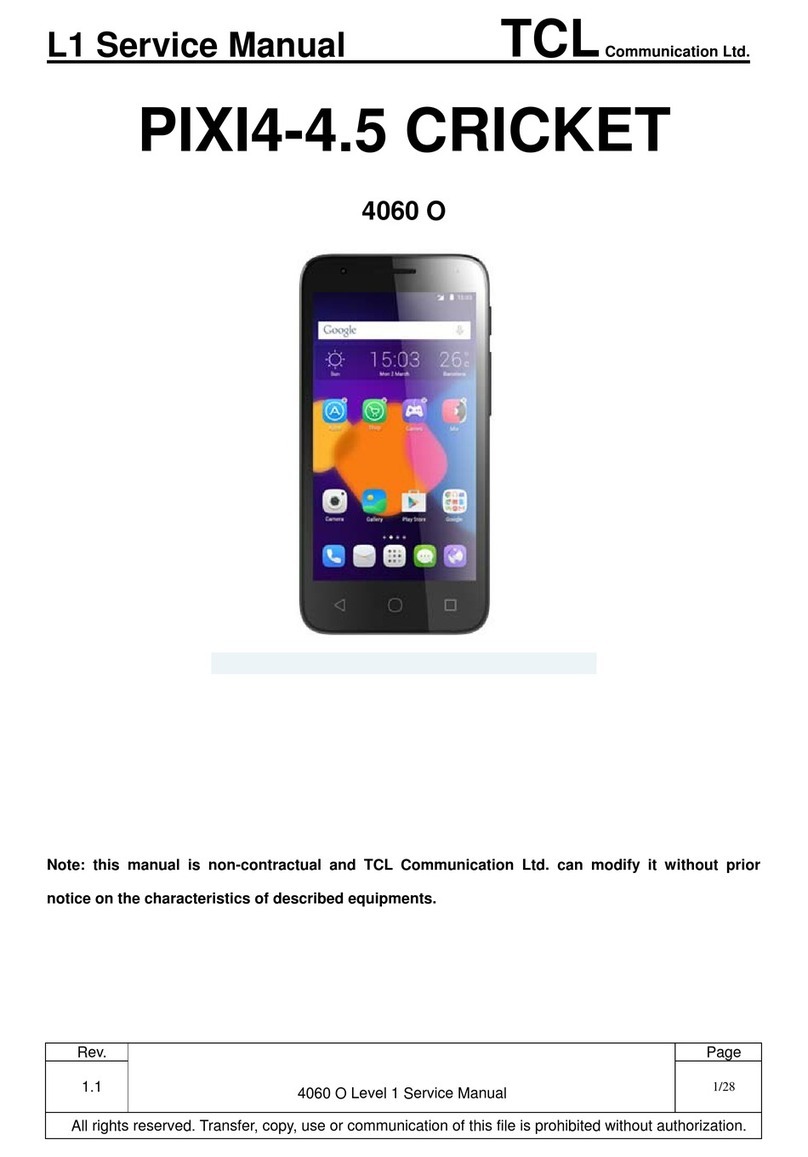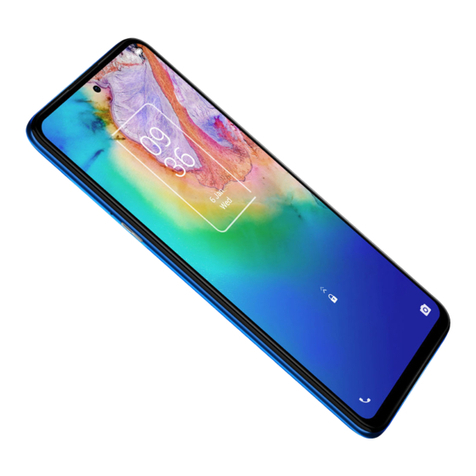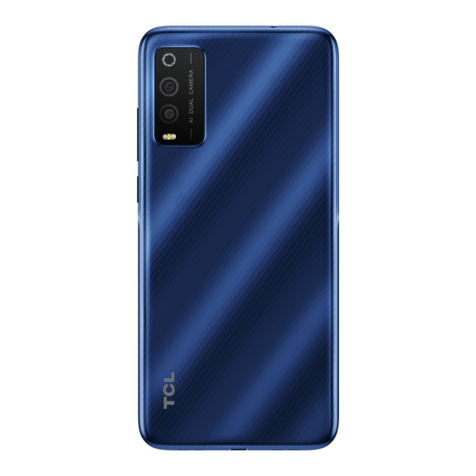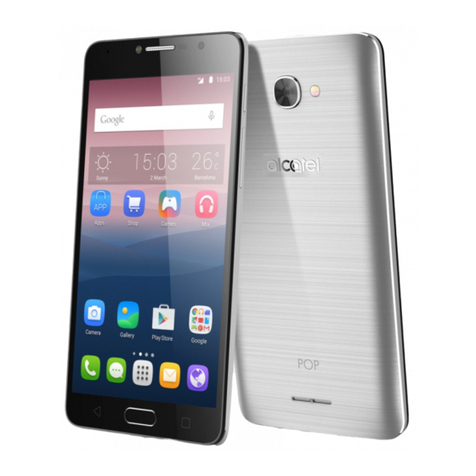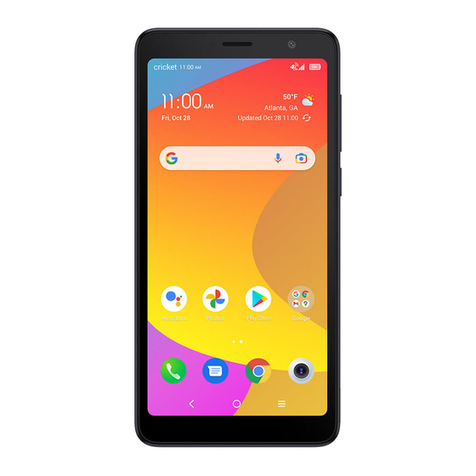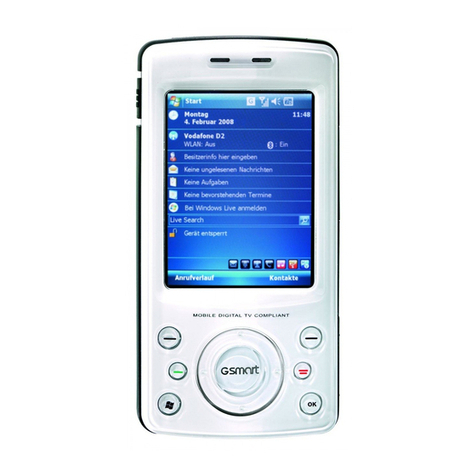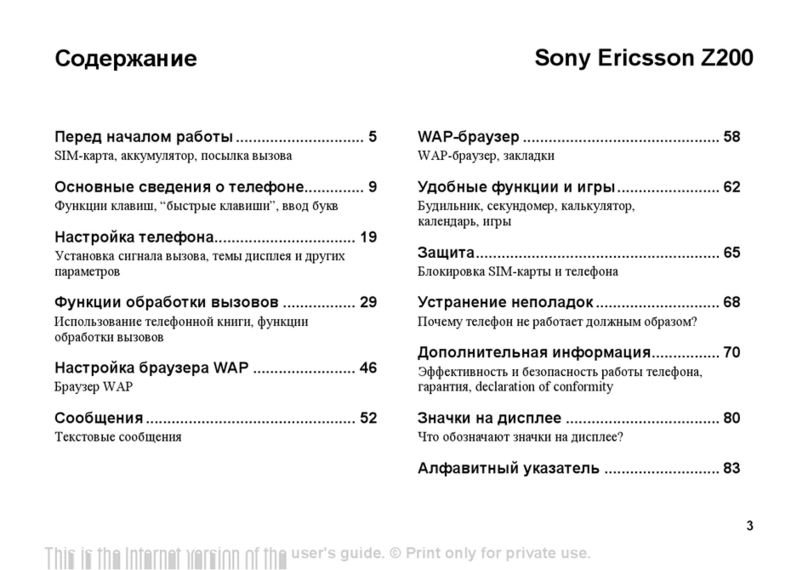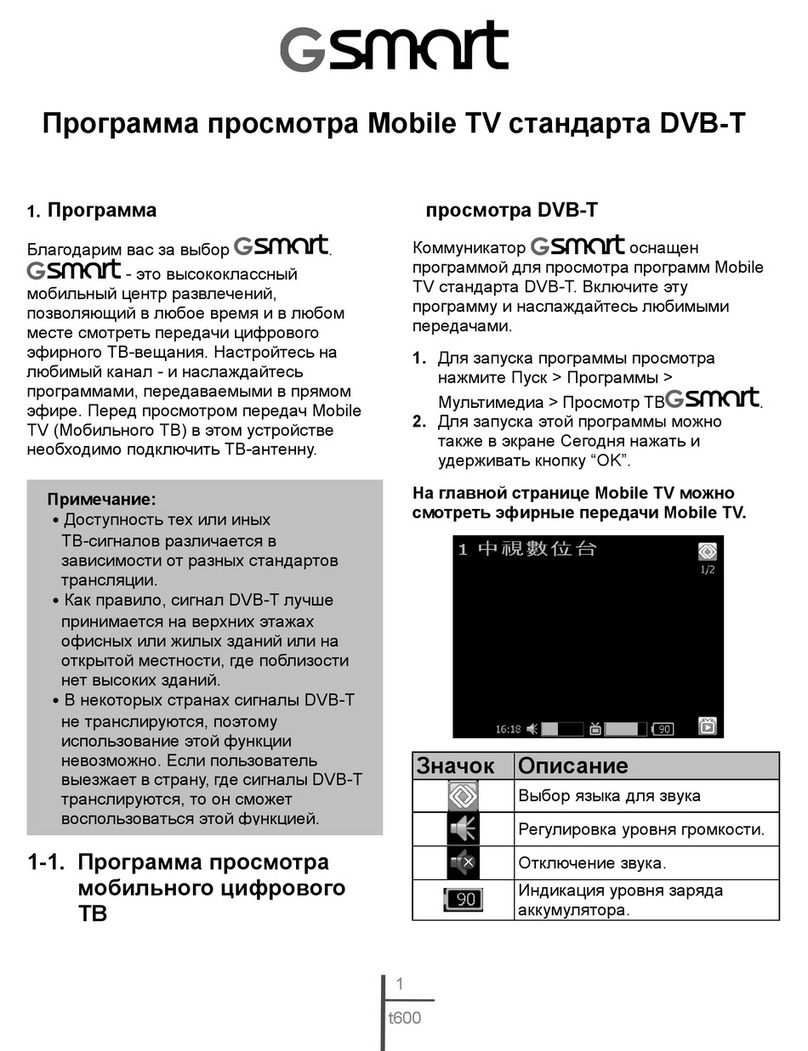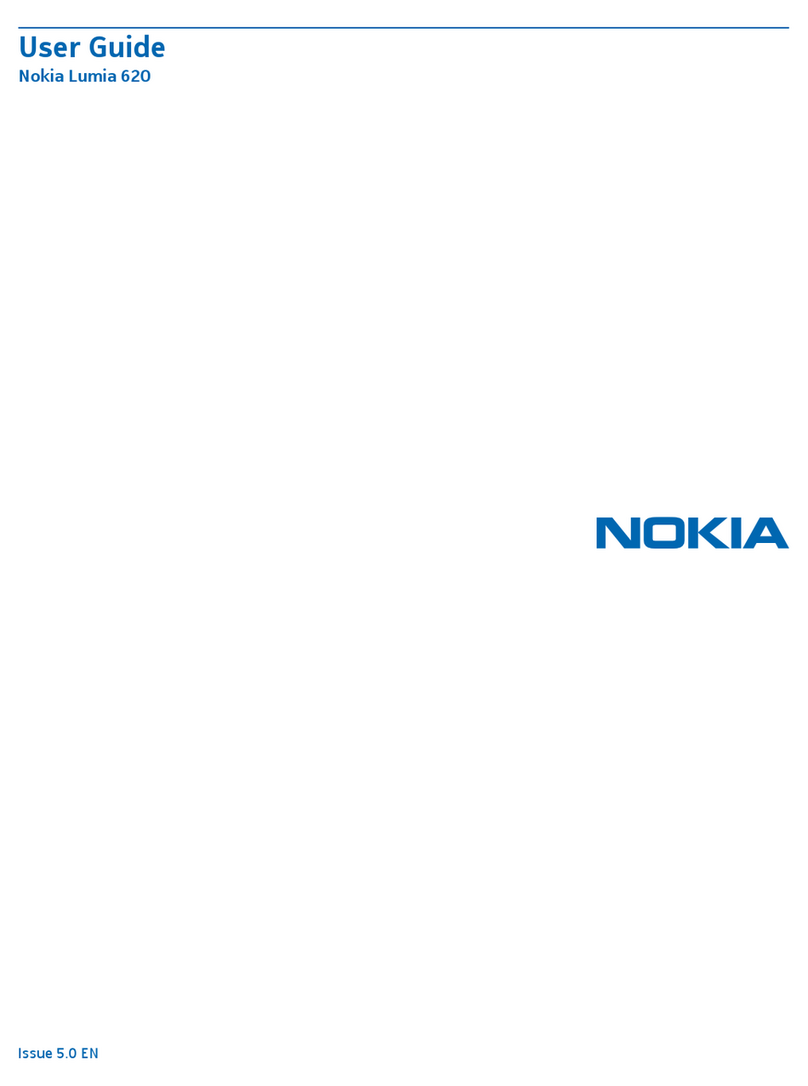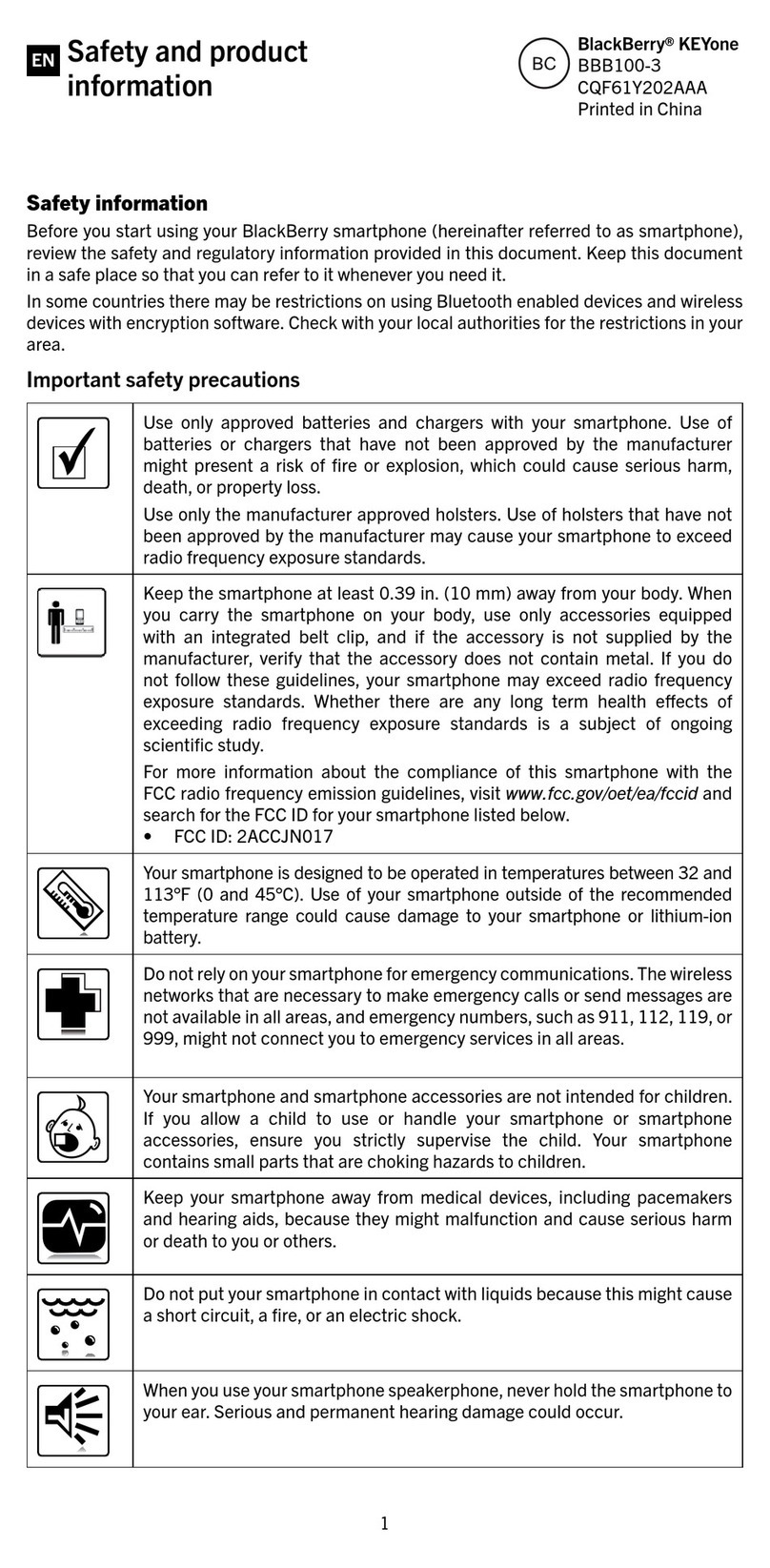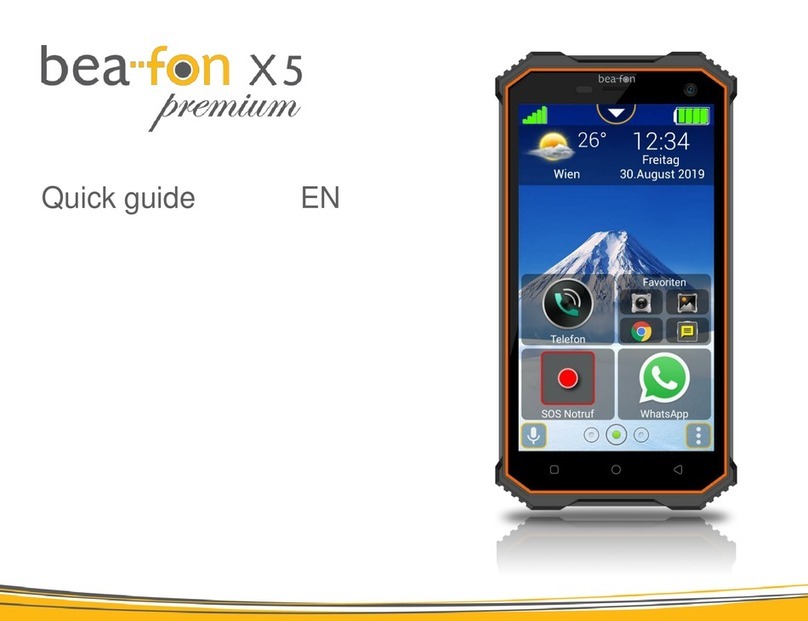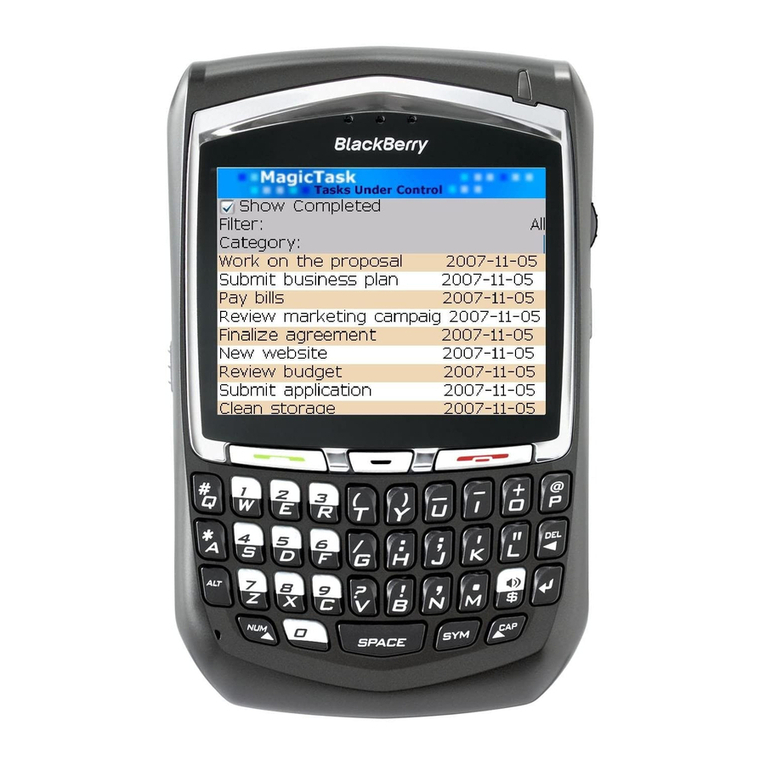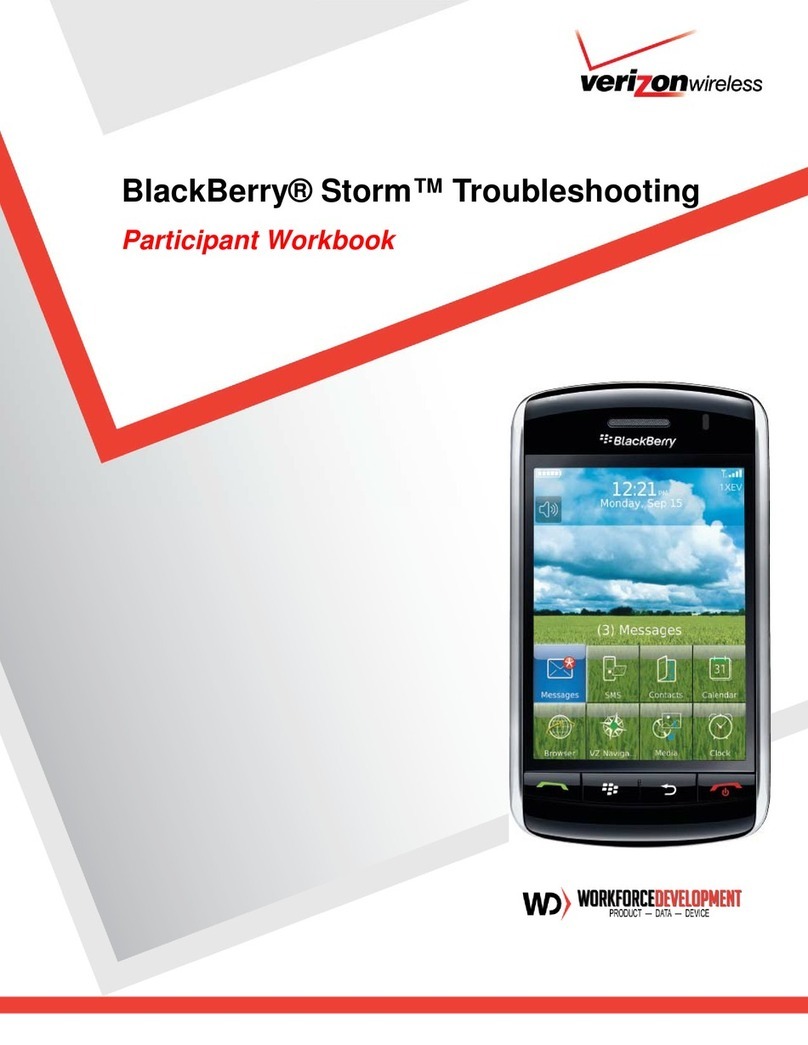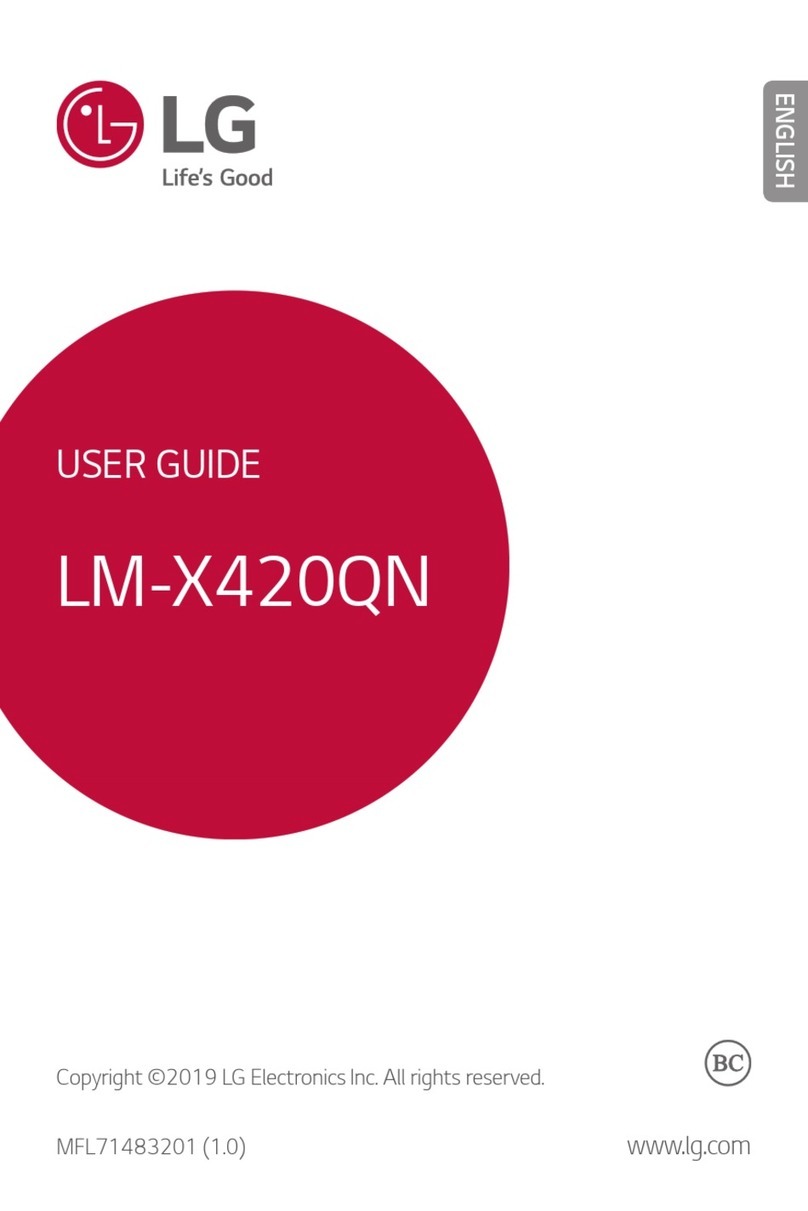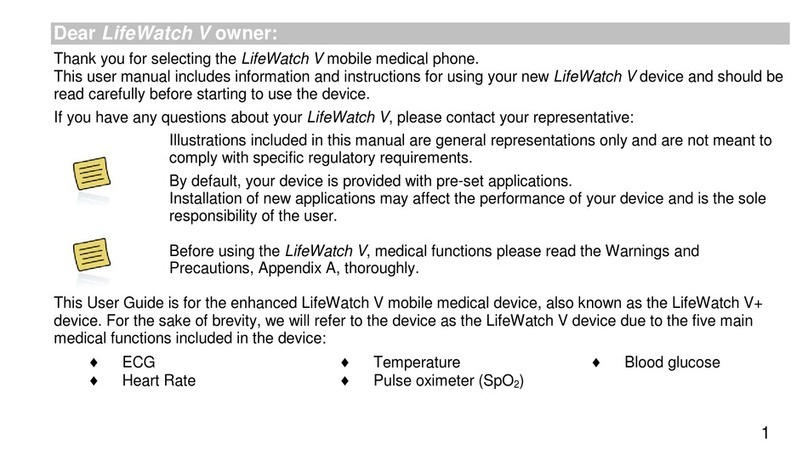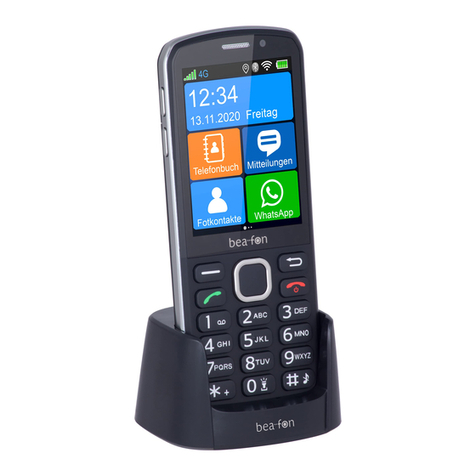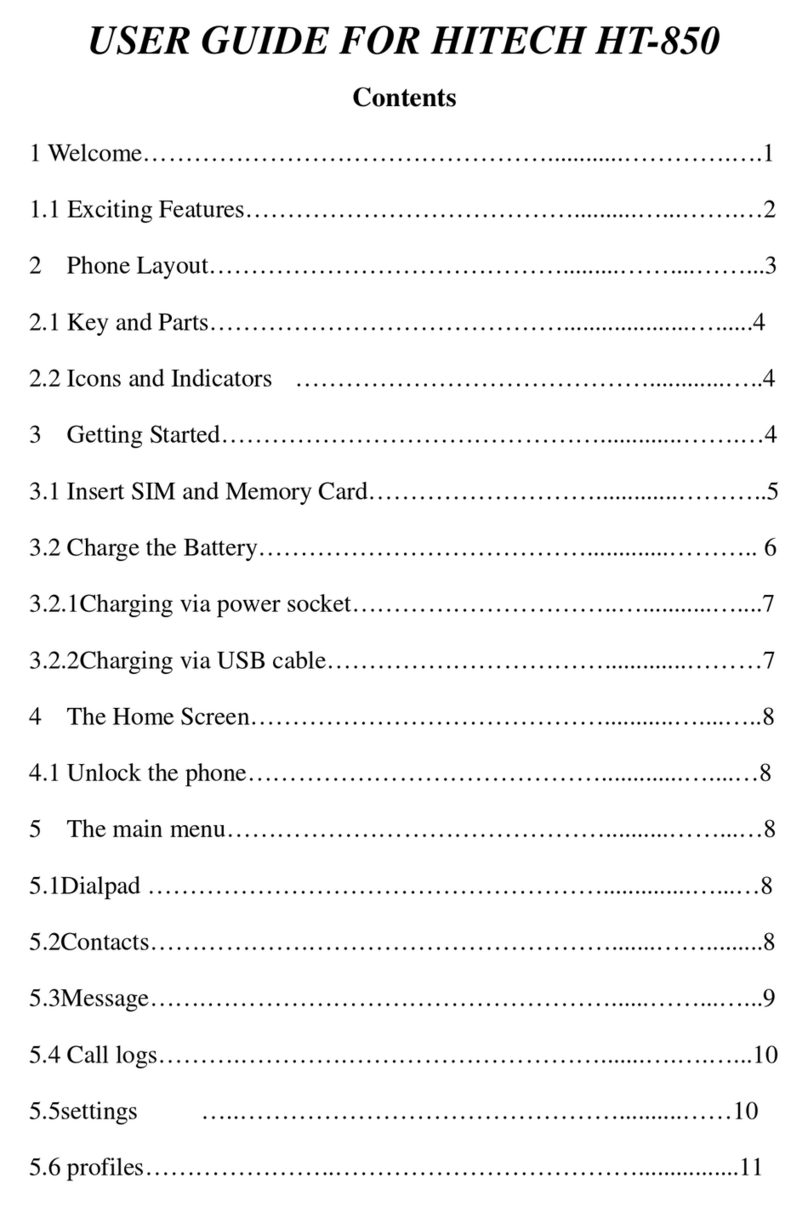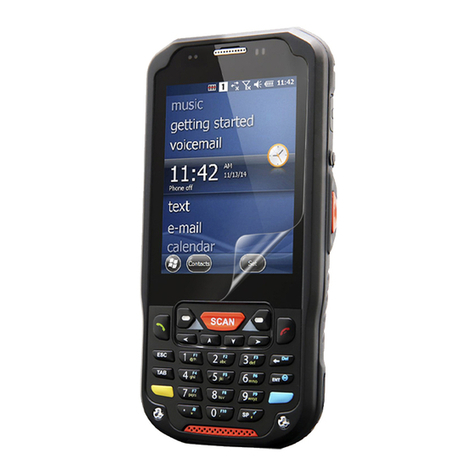
7
• Do not allow your phone to be exposed to adverse weather
or environmental conditions, such as moisture, humidity, rain,
infiltration of liquids, dust, sea air, etc. The manufacturer’s
recommended operating temperature range is 0°C (32°F) to 55°C
(131°F). At over 55°C (131°F), the legibility of the phone’s display
may be temporarily impaired;
• Do not open, dismantle, or attempt to repair your phone yourself;
• Do not drop, throw, or bend your phone;
• Use only batteries, battery chargers, and accessories which are
recommended by TCL Communication Ltd. and its affiliates and
are compatible with your phone model. TCL Communication Ltd.
and its affiliates disclaim any liability for damage caused by the
use of other chargers or batteries;
• Your phone should not be disposed of in a municipal waste. Please
check local regulations for disposal of electronic products;
• Remember to make backup copies or keep a written record of all
important information stored on your phone;
• Some people may suffer epileptic seizures or blackouts when
exposed to flashing lights, or when playing video games. These
seizures or blackouts may occur even if a person never had a
previous seizure or blackout. If you have experienced seizures or
blackouts, or if you have a family history of such occurrences, please
consult your doctor before playing video games on your phone or
enabling a flashing-lights feature on your phone;
• Parents should monitor their children’s use of video games or
other features that incorporate flashing lights on the phones. All
persons should discontinue use and consult a doctor if any of the
following symptoms occur: convulsion, eye or muscle twitching,
loss of awareness, orientation, or movements.
